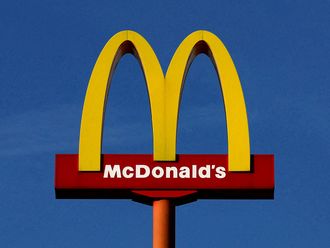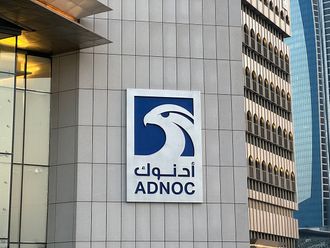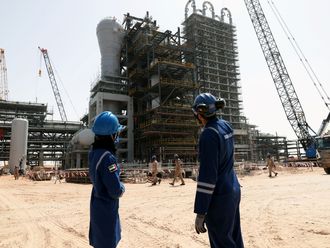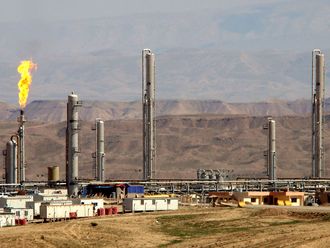Italian banks are back in familiar territory with bonds right across the sector selling off. Some of this is well founded. There’s been a sharp sell-off in Monte dei Paschi’s euro-denominated 10-year Tier 2 bond. This bond was priced far too aggressively when it came to market in January. There was a lot of demand then but the bid on any decent yielding bond was significant in January. There’s no such bid now. The price when it launched did not reflect the risk posed by the sheer weight of issues that Monte has to navigate. The most pressing of these being the securitisation of €24 billion (Dh103 billion) of non-performing loans on the bank’s balance sheet. That process was already fraught and will only be more so now given what’s going on in Italian politics.
The future looks bleak for large swathes of the Italian banking sector. Even before the election, there was a raft of national and regional banks that were uncompetitive, didn’t lend nearly enough and were still weighed down by too much bad debt. Attempts by the government to create a rescue fund for struggling banks did work, in a way. But the rescue of Monte last year was not a blueprint that anyone would want to emulate. Some of the banks will go bankrupt; many certainly need to merge.
Now political uncertainty is squeezing a sector that was already struggling to get to its feet. There’s too much uncertainty in the political situation to read directly across to the banks in minute detail. On the one hand, if the recently changed bankruptcy laws are rolled back then this could really hurt the non-performing loans market. Any big fiscal easing could help growth and therefore the banks but it could also increase debt to GDP, which is already too high, which could eventually feedback to the banks.
It’s not all doom and gloom. As a whole, the banks have dealt with a lot of bad debt, even if there is still too much. The ECB still has room to stand behind the Italian banks by skewing their asset purchases towards Italian government bonds. After all, Mario Draghi will not want all of his good work undone by politics.
Good sources of revenue
Equally, not all of the banks will fare badly. UniCredit and Intesa Sanpaolo have a certain capacity to help themselves during this most recent sell off. They have both proven that they can dispose of non-performing loans to private equity companies and other managers better able to manage the assets. Both have good sources of revenues, like asset management businesses, which should prove durable.
They are also both taking steps to insulate themselves from the next downturn. In addition to disposing of legacy bad debts, the banks have invested heavily in improving their risk management and underwriting systems which should ensure recently granted loans should perform much better through the next economic cycle. At some point, the market should work out that these are sound businesses getting tarred with the same brush as the rest of the banking sector.
This bout of selling will probably not abate until the temperature of Italian politics cools a little. Given the tempestuous nature of Italian politics, that could be a while.
— Andrew Fraser is a Head of Financial Credit Research at Aberdeen Standard Investments.












